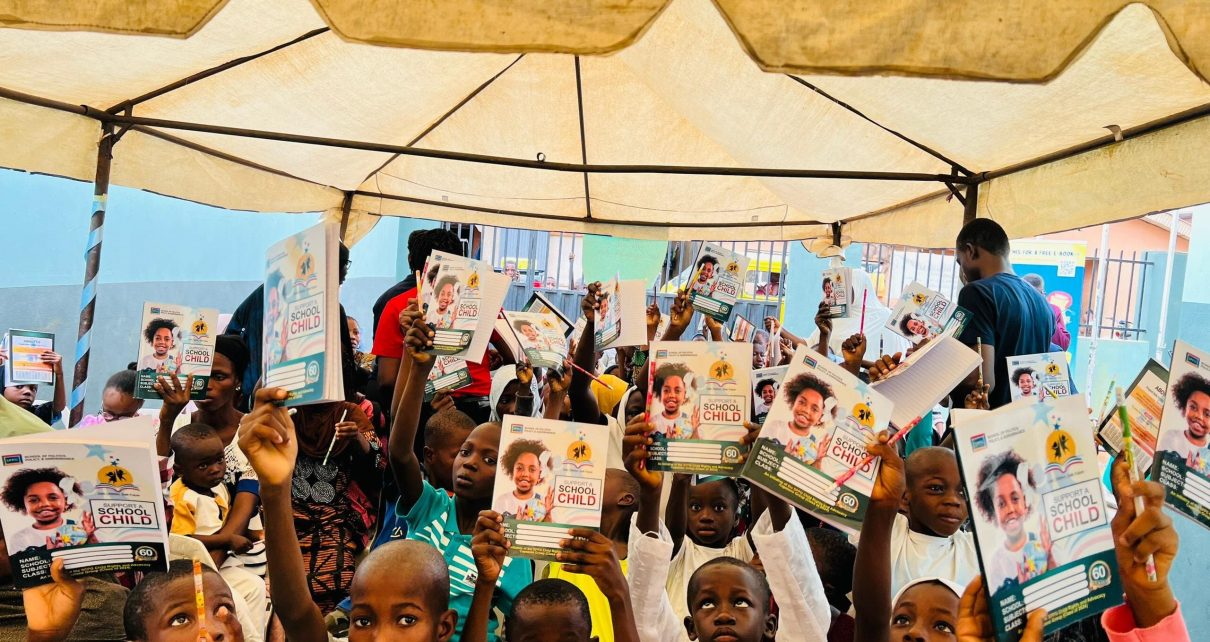As the 2024/25 academic session approaches, Nigeria’s education crisis continues to deepen, with millions of children expected to remain out of school. By September 9, primary and secondary schools will resume across the country, yet a significant number of students will not return to the classroom, adding to the already alarming statistic of 18.3 million out-of-school children aged 6–14, according to a recent UNICEF report.
The causes of this crisis are complex and deeply rooted. Poverty, insecurity, disability, poor access to education, child labor, early marriage, cultural norms, and student apathy all contribute to the growing number of children unable to attend school. Despite ongoing efforts, these challenges remain stubbornly persistent.
In response to this pressing issue, 20 change agents from the School of Politics, Policy, and Governance (SPPG) launched the “Safe Children, Safe Future” initiative earlier this year. Their mission is to advocate for the rights and well-being of out-of-school children, ensuring they have a voice, protection, and educational opportunities.
The initiative has already made a tangible impact in Lagos and Abuja. On May 25, 2024, in collaboration with the Aderonke Foundation, they organised a Children’s Day event in Agege, Lagos State, reaching over 100 children and their parents. The event highlighted the importance of education and the critical need to address the out-of-school crisis. Parents were encouraged to prioritise their children’s education, while the children were inspired to embrace the opportunities that education can bring.
In Abuja, the group partnered with Beyond the Classroom Foundation on June 28, 2024, to address financial barriers to education at LEA Primary School in Karonmajiji. Through this intervention, school fees were paid for 30 vulnerable students, including 20 from LEA Primary School and 10 from a school for children with disabilities. This initiative ensured that these students could continue their education without financial constraints, a critical step in breaking the cycle of poverty and illiteracy.
Recognising the importance of raising public awareness, the group also hosted a webinar on May 27, 2024, titled “The Scourge of Out-of-School Children.” The discussion featured prominent speakers, including Kyauta Giwa, Coordinator of the MOVE Programme at ActionAid Nigeria; Garba Tasiu, Coordinator of the Concerned Parents & Educators (CPE) network in Kano; and Taiwo Akinlami, a Social Development Attorney and Child Safeguarding Innovator. The panel, moderated by Mrs. Helen Essien of SPPG, addressed the limitations of the Universal Basic Education (UBE) Act, the challenges of low school attendance in Northern Nigeria, and offered recommendations for reversing the trend. Mrs. Yinka Ogunde, founder of CPE and Edumark, delivered the keynote address.
The group’s efforts have reached over 130 children in just six months, but they stress that this is only the beginning. “We need to ensure sustainability for this ongoing support to vulnerable students,” said a representative from the initiative. “There are still so many more in need, and we must continue to stir the hearts of Nigerians to join us in this mission.”
With over 50% of Nigeria’s population aged 19 and below, the implications of an undereducated youth population are dire. The initiative calls on every Nigerian to take action by sponsoring a child’s education. “If 20 million Nigerians can each fund the education of one child, we can reverse this hopeless trend,” the group emphasizes. For as little as N30,000 to N50,000 per year, a child can continue their education and build a brighter future.
“The future of our country depends on us,” the group concludes, urging citizens to contribute to this critical cause. For more information on how to get involved, they can be reached on Instagram at @safechildrensafefuture or via email at safechildrensafefuture@gmail.com.


